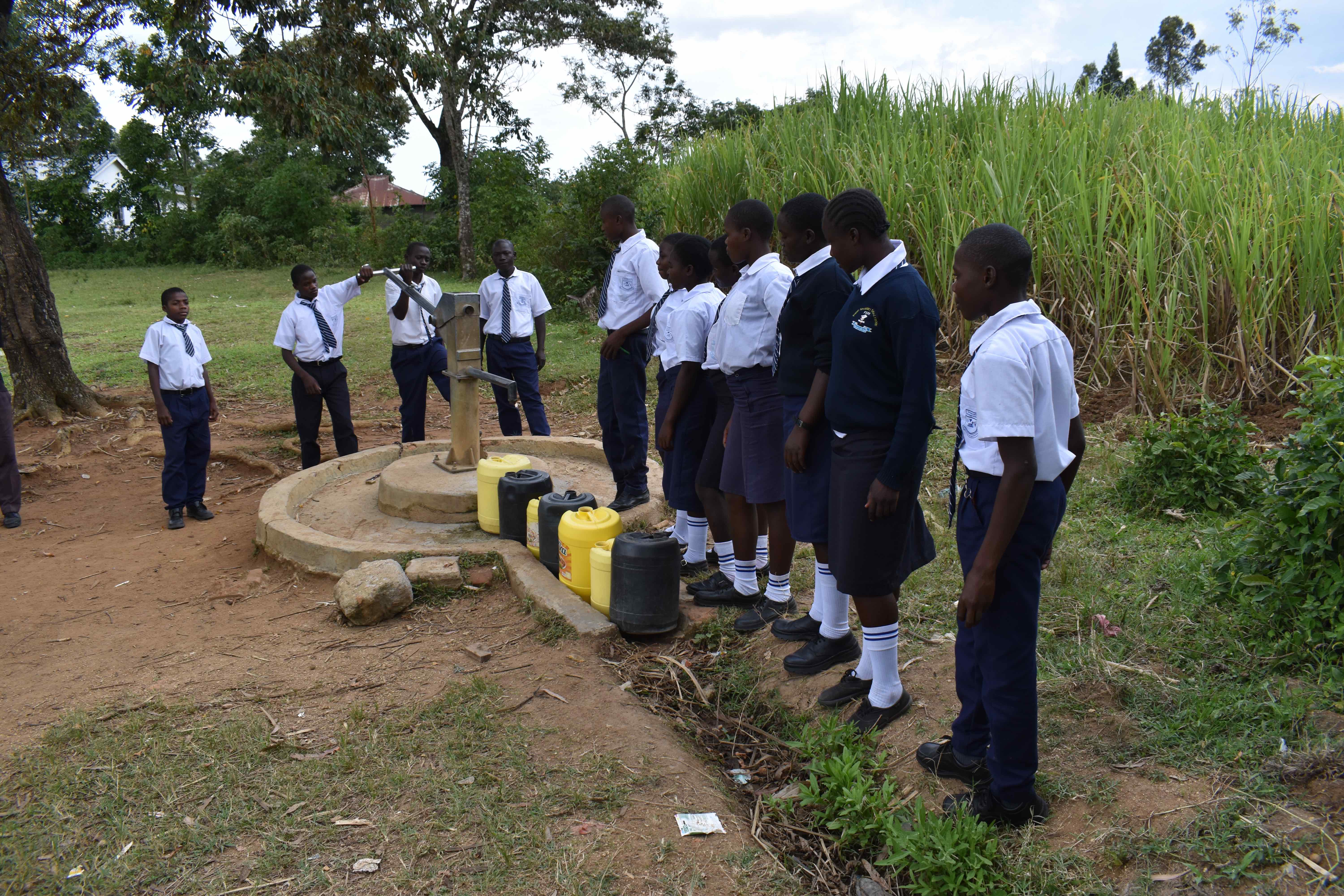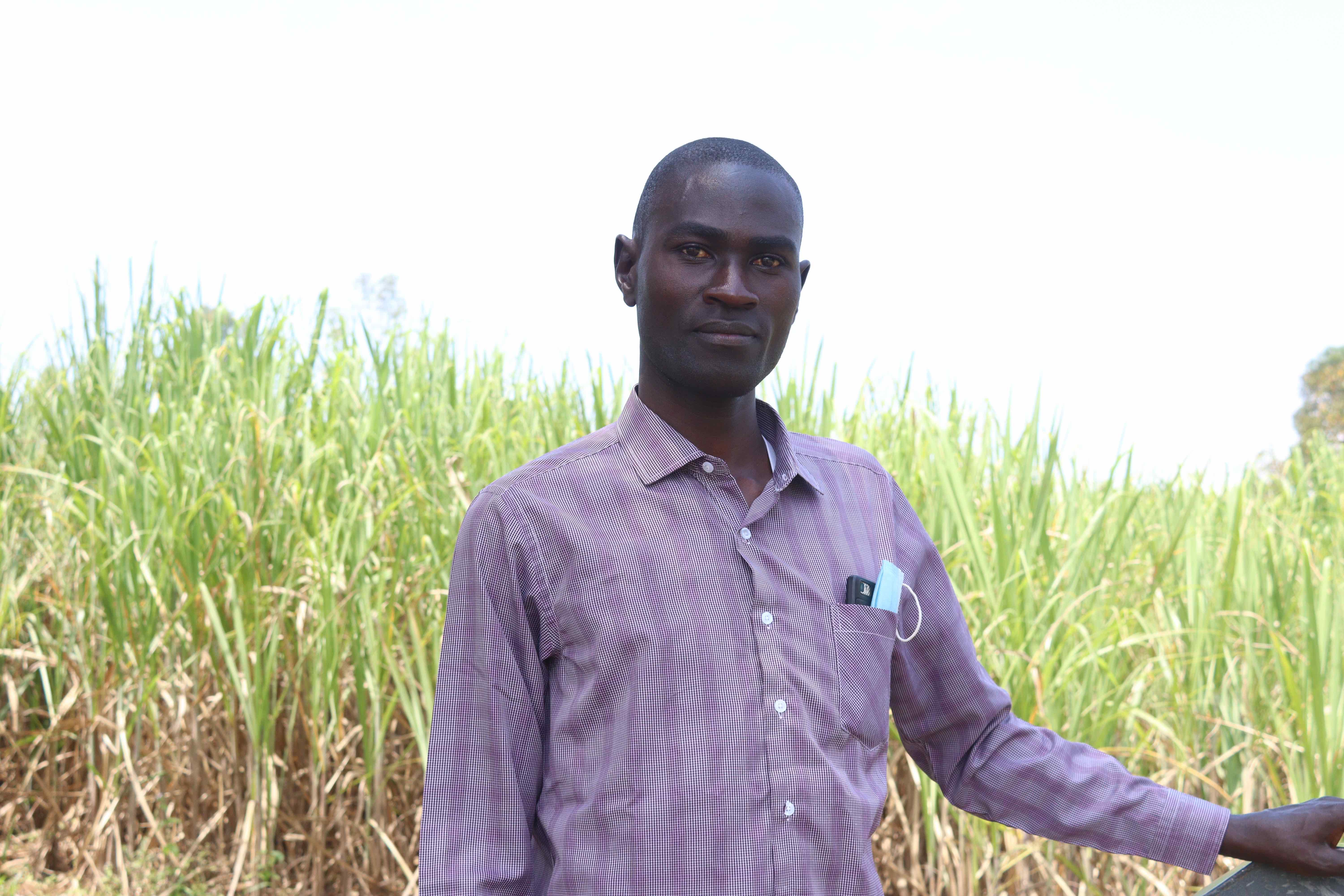The 155 students of Esokone waste a lot of time collecting water needed for drinking, cleaning, and cooking every morning from a hand-dug well near the school. Along with the secondary school, the well also provides water for the local primary school and surrounding community members. Students wait in long lines for water, wasting valuable class time.

Student Derrick S. shared how missing class time impacts the students' academic performance. "We generally perform averagely because we waste a lot of time outside either fetching water or going to look for water."
When the overcrowded dug well breaks down, maintenance costs to repair it are very high, and the school carries the burden of those repairs. When the water from the well is unavailable, students often have to walk long distances to other sources, which can be exhausting and lead to poor concentration in class.
Martin Musungu, a teacher at the school, commented, "I love seeing my students in class busy reading. [That] is when I can promise their future is bright. To enable this goal, water solutions have to be put into consideration. Wastage of time looking for water consumes time created for studies."

The proposed well project will address the current water situation of the school and provide a long-term water solution so students can concentrate on learning and creating bright futures.
What We Can Do:
New Well
We conducted a hydrogeological survey at this school, and the results indicated the water table beneath it is an ideal candidate for a borehole well. Due to a borehole well's unique ability to tap into a safe, year-round water column, it will be poised to serve all of the water needs for this school's large population, even through the dry season.
The school will help collect the needed construction materials such as sand, rocks, and water for mixing cement. They will also provide housing and meals for the work team, in addition to providing local laborers. We will complement their materials by providing an expert team of artisans and drilling professionals, tools, hardware, and hand-pump. Once finished, the school’s students and staff will use water from the well and staff for drinking, handwashing, cooking, cleaning, and much more.
The school and we strongly believe that all of these components will work together to improve standards at this school, which will help lead to better student academic performance and unlock the opportunity for these students to live better, healthier lives.
Handwashing Stations
The student health club will oversee two new handwashing stations we will provide and ensure they are kept clean and in working condition. The club leaders will fill the handwashing stations with water daily and make sure they are always supplied with a cleaning agent such as soap or ash.
VIP Latrines
Two triple-door latrine blocks will be constructed with local materials that the school will help gather. Three doors will serve the girls, and three doors will serve the boys. These new latrines will have cement floors designed to be easy to use and clean. And with a borehole right on school property, there should be enough water to keep them clean.
Training on Health, Hygiene, COVID-19, and More
We will hold a one-day intensive training session with students, teachers, and parents. This training will cover a wide range of topics, including COVID-19 symptoms, transmission routes and prevention; personal and environmental hygiene; and the operation and maintenance of the borehole, latrines, and handwashing stations. There will be a special emphasis on handwashing.
Our team of facilitators will use various methods to train, including participatory hygiene and sanitation transformation and asset-based community development. We will initiate a student health club, which will prepare students to lead other pupils into healthy habits at school and home. We will also lead lectures, group discussions and provide illustrative handouts to teach health topics and promote good hygiene practices within the school, including handwashing and water treatment. We will then conduct a series of follow-up training before transitioning to our regularly scheduled support visits throughout the year.

 Borehole Well and Hand Pump
Borehole Well and Hand Pump
 Rehabilitation Project
Rehabilitation Project





































